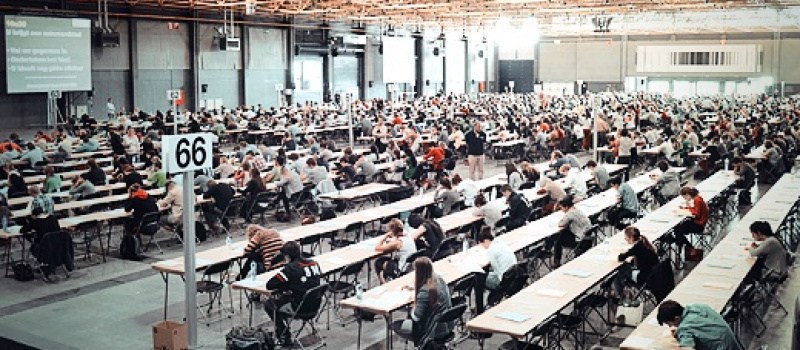The examination held by the Flemish universities to allow admission to medical and dental studies will this year be postponed until August, the region’s education minister Ben Weyts has announced.
Normally the exam takes place in July, with a second sitting in August, the two sittings involving some 6,000 prospective students, who take the exam in a conference hall at the Heysel complex in Brussels.
On this occasion, however, there will be one exam in August, carried out digitally. That can take place at Heysel, but if medical advice goes against the idea, new locations can be found. In that case, the exam can be spread over ten or more locations across Flanders and Brussels instead of one central location. A final decision on that question will be taken in mid-July.
“We’re taking the digital step now,” said Weyts. “A modernisation was on the cards sooner or later, and we’re now taking the opportunity to push through a major reform. We will be reaping the fruits of this digital acceleration for years to come.”
The exam for medical students will take place on 25 August, and for dental students on 26 August, Weyts has agreed with the exam commission and representatives of the educational establishments.
The Flemish universities, including the VUB in Brussels, use an entrance exam to limit the number of first-year students studying medicine and dentistry, arguing that it filters out weaker candidates and prevents them from having to lose a year of studies when they have to drop out at the end of the first year.
The exam is normally taken by students from the sixth year of secondary school, although some younger students from fifth year also sit the exam for the experience. Most students are from Belgian schools, although there are always several hundred from other countries, mainly the Netherlands.
Twice as many candidates are women than men, and the pass rate in general is about 20%, although among students just leaving school the pass rate goes up to about 26%.
This year, given that school students have lost almost all of their final term, that will be taken into account when evaluating their results, Weyts said.
“In that way we aim to avoid endless discussions or even legal procedures about the exam. Corona upset the second semester for many students, so we’ll take that into account. There’s more than enough material left over to set a good strong exam. The degree of difficulty will not be in danger.”
Alan Hope
The Brussels Times

